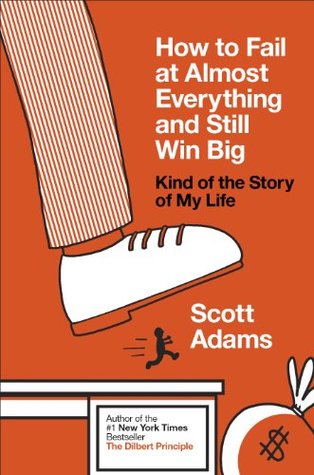More on this book
Community
Kindle Notes & Highlights
by
Scott Adams
Started reading
December 22, 2022
All I know for sure is that I pursued a conscious strategy of managing my opportunities in a way that would make it easier for luck to find me. Did my strategy make a difference, or is luck just luck, and everything else is just rationalization? Honestly, I don’t know.
In our messy, flawed lives, the nearest we can get to truth is consistency. Consistency is the bedrock of the scientific method. Scientists creep up on the truth by performing controlled experiments and attempting to observe consistent results.
The best example of the power of simplicity is capitalism. The central genius of capitalism is that all of its complexities, all of the differences across companies, all of the challenges, decisions, successes, and failures can be boiled down into one number: profits. That simplification allows capitalism to work. The underlying complexity still exists in business,
I have cultivated a unique relationship with failure. I invite it. I survive it. I appreciate it. And then I mug the shit out of it.
It’s easy to be passionate about things that are working out, and that distorts our impression of the importance of passion.
If you ask a billionaire the secret of his success, he might say it is passion, because that sounds like a sexy answer that is suitably humble. But after a few drinks I think he’d say his success was a combination of desire, luck, hard work, determination, brains, and appetite for risk.
You already know that when your energy is right you perform better at everything you do, including school, work, sports, and even your personal life. Energy is good. Passion is bullshit.
failure is where success likes to hide in plain sight. Everything you want out of life is in that huge, bubbling vat of failure. The trick is to get the good stuff out.
If success were easy, everyone would do it. It takes effort. That fact works to your advantage because it keeps lazy people out of the game.
I do want my failures to make me stronger, of course, but I also want to become smarter, more talented, better networked, healthier, and more energized.
Prior to launching Dilbert, and after, I failed at a long series of day jobs and entrepreneurial adventures. Here’s a quick listing of the worst ones.
Good ideas have no value because the world already has too many of them. The market rewards execution, not ideas. From that point on, I concentrated on ideas I could execute.
timing is often the biggest component of success. And since timing is often hard to get right unless you are psychic, it makes sense to try different things until you get the timing right by luck.
Goal-oriented people exist in a state of continuous presuccess failure at best, and permanent failure at worst if things never work out.
goal is a specific objective that you either achieve or don’t sometime in the future. A system is something you do on a regular basis that increases your odds of happiness in the long run. If you do something every day, it’s a system. If you’re waiting to achieve it someday in the future, it’s a goal.


